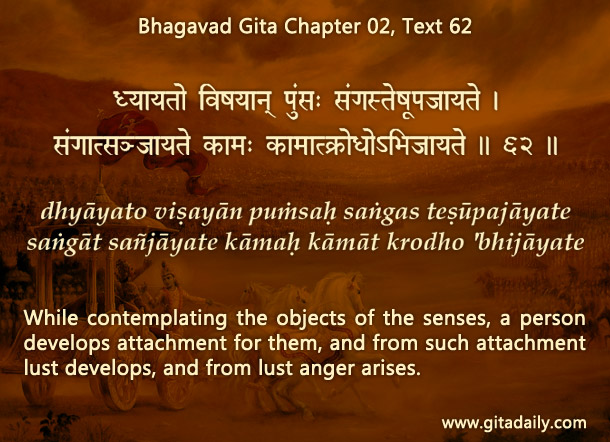Suppose a horse carrying a rider spots a juicy vegetable in the rocky terrain alongside the road. If the rider is not vigilant, the horse will run off course, gain momentum and become uncontrollable, eventually throwing off the rider.
Just as the rider travels the terrain using the horse, we souls traverse material existence using a horse-like tool – our mind. The mind integrates the inputs from the senses and conveys our intentions to the senses.
But sometimes, a distracting sensual temptation can infatuate the mind, which can then drag us into an unhealthy indulgence. The Bhagavad-gita cautions that what begins as contemplation aggravates to obsession (02.62) and ends in self-destruction (02.63).
Just as a timely pull can control the horse, so too can timely restrain control the mind. When such restraint is neglected, the thought grows into a desire, which then grows into an intention, thereby sentencing us to self-sabotage. Just as a rider on a wild horse meets a deadly fall, so too does a seeker with a wild mind falls to unworthy sensual indulgences.
Of course, the fallen rider can still get up, climb on the horse and come back on track. But that process is painful and perilous. And it can be avoided by a little timely vigilance. Similarly, even if we fall from expected spiritual standards, we can still pick ourselves up and resume our life of purpose and integrity. Still, the whole process involves the peril of falling to unpredictable nadirs of degradation and the pain of undergoing guilt, discouragement, humiliation and battle with reinforced conditionings.
Thankfully, we can protect ourselves from all this peril and pain. How? By exercising due vigilance in checking the mind’s distractions and focusing it on our higher purposes, especially the highest purpose of devotional service to our all-attractive Lord.
To know more about this verse, please click on the image
Explanation of article:
Podcast:
Download by “right-click and save”


Leave A Comment